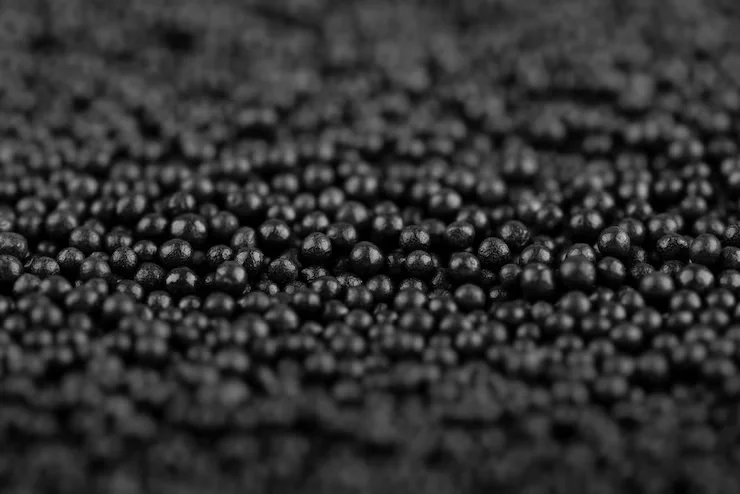One of the key reasons industries invest in high-quality activated carbon is its unmatched adsorption capacity. This material can efficiently capture and remove a wide range of pollutants, from organic compounds to heavy metals. By using custom activated carbon solutions, industries can tailor their filtration processes to specific needs, improving efficiency and effectiveness.
Understanding Activated Carbon and Its Role in Filtration
Activated carbon is a processed form of carbon that has been treated to develop a highly porous structure. These pores create an extensive surface area, allowing the material to trap and hold contaminants through a process known as adsorption. Unlike absorption, where substances are soaked into a material, adsorption ensures that impurities adhere to the surface of the carbon, making it an excellent choice for purification applications.
The effectiveness of activated carbon in filtration depends on several factors, including pore size distribution, surface area, and activation process. High-quality activated carbon is designed to offer maximum adsorption efficiency, ensuring that even the most challenging contaminants are removed effectively.
Key Industries That Rely on High-Quality Activated Carbon
1. Water Treatment Industry
Clean water is a necessity, and water treatment plants rely on activated carbon to remove contaminants such as chlorine, pesticides, and industrial waste byproducts. High-quality activated carbon ensures that water is free from harmful chemicals and odours, making it safe for human consumption and industrial use.
In municipal water treatment, activated carbon is used to eliminate volatile organic compounds (VOCs), chlorine byproducts, and heavy metals. It also plays a crucial role in filtering pharmaceutical residues and microplastics, preventing these pollutants from entering drinking water systems.
2. Air Purification and Emissions Control
Industries that generate harmful emissions, such as manufacturing plants and refineries, use activated carbon filters to capture airborne pollutants. High-quality activated carbon effectively removes volatile organic compounds, odours, and toxic gases, ensuring compliance with environmental regulations and improving air quality.
Household and commercial air purifiers also rely on activated carbon to eliminate unpleasant odours, allergens, and smoke particles. The adsorption properties of activated carbon make it an essential component in HVAC systems, helping to maintain clean indoor air environments.
3. Food and Beverage Industry
In the food and beverage sector, activated carbon is widely used for purification processes, including decolourization, deodorization, and contaminant removal. For example, sugar and edible oils undergo carbon filtration to remove unwanted colours and impurities, ensuring a pure and high-quality final product.
Beverage manufacturers also utilise activated carbon to filter unwanted flavours, pesticides, and organic compounds from ingredients such as fruit juices, alcoholic beverages, and soft drinks. This process enhances taste and ensures compliance with food safety regulations.
4. Pharmaceutical and Medical Applications
The pharmaceutical industry relies on activated carbon for drug purification, detoxification, and controlled substance filtration. High-quality activated carbon is essential in removing impurities during drug manufacturing, ensuring that medicines meet strict safety and efficacy standards.
Medical professionals also use activated carbon in emergency treatments for poisoning and overdoses, as it binds to toxins in the digestive tract, preventing their absorption into the bloodstream.
5. Industrial and Chemical Processing
Many industrial applications depend on activated carbon for solvent recovery, odour control, and purification. In the chemical manufacturing sector, activated carbon is used to separate and purify chemicals, ensuring that final products meet quality specifications.
Additionally, industries involved in gold recovery and mining use activated carbon to extract precious metals efficiently. This method, known as carbon-in-pulp (CIP) and carbon-in-leach (CIL), enhances the recovery of gold while minimising environmental impact.
Advantages of Using High-Quality Activated Carbon
Industries choose high-quality activated carbon for filtration due to its superior adsorption efficiency and reliability. Some of the key benefits include:
- Enhanced Contaminant Removal: High-quality activated carbon has a greater surface area and optimized pore structure, ensuring better removal of impurities.
- Extended Lifespan: Premium-grade activated carbon lasts longer, reducing the need for frequent replacements and lowering operational costs.
- Regulatory Compliance: Industries must adhere to strict environmental and safety regulations. High-quality activated carbon ensures compliance by effectively filtering hazardous substances.
- Improved Product Quality: Whether in food production, pharmaceuticals, or air purification, using top-tier activated carbon results in cleaner, safer, and higher-quality products.
- Customisation Options: Industries can benefit from customised activated carbon solutions tailored to specific filtration needs, enhancing efficiency and effectiveness.
Choosing the Right Activated Carbon for Industrial Use
Selecting the right type of activated carbon depends on the industry and the contaminants that need to be removed. Factors to consider include:
- Pore Structure: Micro, meso, or macro pores influence the adsorption capacity of different pollutants.
- Activation Method: Steam-activated vs. chemically activated carbon affects its adsorption properties.
- Material Source: Activated carbon is derived from coal, coconut shells, wood, and other organic materials, each offering unique filtration benefits.
Partnering with a reliable supplier of high-quality activated carbon ensures optimal performance in industrial filtration applications.
Conclusion
Industries across the globe depend on high-quality activated carbon to achieve superior filtration and purification. Whether in water treatment, air purification, pharmaceuticals, or food production, this material plays a crucial role in removing contaminants, improving product quality, and ensuring compliance with safety regulations. By investing in premium-grade activated carbon and custom activated carbon solutions, businesses can enhance efficiency, reduce environmental impact, and maintain a high standard of quality in their operations.










 /home/u448362301/domains/theexpotab.com/public_html/wp-content/themes/foxiz/templates/popup.php on line 167
/home/u448362301/domains/theexpotab.com/public_html/wp-content/themes/foxiz/templates/popup.php on line 167